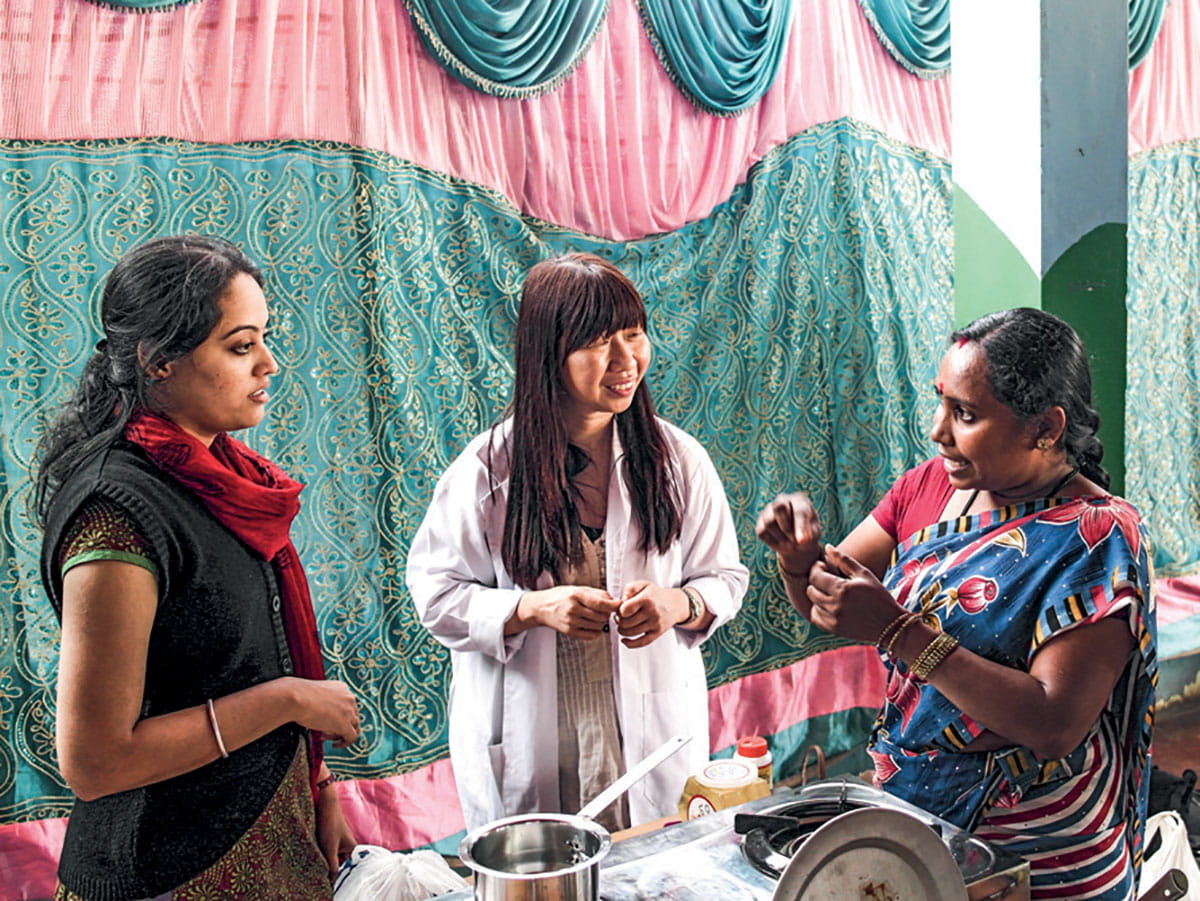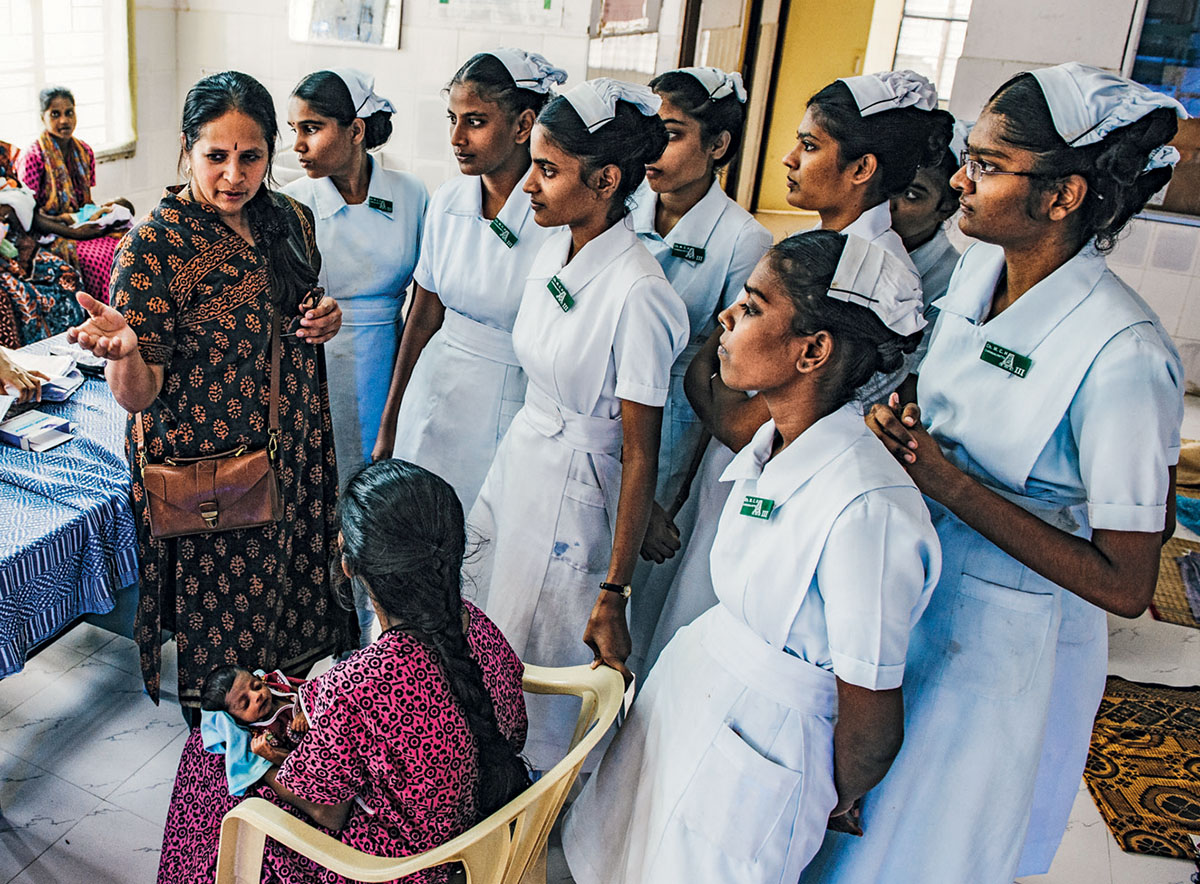Stories > Making a Difference Where it Counts
Making a Difference Where it Counts
PHOTOS SINGAPORE INTERNATIONAL FOUNDATION
he outcomes of overseas volunteer projects are typically measured in numbers. Often overlooked is the intangible impact that volunteers make when they engage communities on the ground. These include the people-to-people ties that are formed with the beneficiaries, which continue even after the projects have ended.
A research paper published by the Singapore International Foundation (SIF) in November last year provides another perspective to the impact that volunteers make. Titled Global Partners For Sustainable Development: The Added Value Of Singapore International Foundation Volunteers, it looks at the intangible contributions of SIF’s Singapore International Volunteers (SIV) programme, which shares skills and experiences to empower and uplift communities. The report is the third study in a series of papers on the contributions of international volunteers in Asia.
“We felt like we had left a piece of ourselves there. They, too, are with us in our hearts. We have created a bond through the shared experience, and that will remain with us for the rest of our lives. Hopefully, people beyond this generation will also feel the impact if they continue teaching others in their community.”
Teh Chee Wen, holistic nutritionist and SIF volunteer
 |
|
SIF volunteer Teh Chee Wen conducting a nutrition workshop in Bangalore. |
It aims to find out how SIF volunteers contribute to capacity and skills building; how they create trust, cross-cultural understanding and social capital; as well as how they build a global network for sustainable development between stakeholders. The study, conducted by Dr Benjamin J Lough of the School of Social Work at the University of Illinois at Urbana-Champaign, looks at the contributions of SIF volunteers involved in seven SIV healthcare projects in Indonesia and India.
It concludes: “In order to truly value the contributions of volunteering as a people-centred development approach, donors and decisionmakers need to place a higher value on intangible constructs such as friendship, compassion, inclusion, enthusiasm and trust. Although these constructs are not typically [recognised] from an evaluation perspective, they have real value in the eyes of beneficiaries. In many cases, these characteristics were articulated as volunteers’ most valued contributions beyond project outputs… Until stakeholders place a greater emphasis on less-tangible but valued intermediary constructs, the true merit of volunteers’ contributions to sustainable development will remain undervalued.”
HEART TO HELP
The findings reflect the sentiments of SIF volunteers. Since 1991, the SIF has sent more than 4,000 to 17 countries to participate in various projects, ranging from healthcare to education.
Dr Ramaswamy Akhileswaran, a consultant in geriatric medicine at Singapore’s Khoo Teck Puat Hospital, is an SIF volunteer. Since 2009, he has trained doctors, nurses and allied health professionals in palliative care services for both children and adults in Indonesia through SIV projects. He says that one of the intangible benefits from his involvement is how the trainees’ attitudes have changed over time, from initially being apprehensive about dealing with end-of-life patients, to having the confidence to interact with and support them and their families. He adds: “The intangible benefits of the work go beyond the patients to impact healthcare in Jakarta and Indonesia over a period of time. In essence, it’s a palliative care movement for people to understand how to respond to these patients by involving the whole community.”
Another SIF volunteer, Teh Chee Wen, who is a holistic nutritionist, worked with communities living in slums in Bangalore to educate them on basic nutrition, hygiene and healthy living for a SIV project from 2014 to 2016. She says that by working closely with the local communities, they were able to achieve results that went above and beyond the objectives of the project. These outcomes, she adds, were often unplanned and led to greater impact than they had intended.

In the Indian state of Tamil Nadu, SIF volunteers worked with local partners who care for at-risk newborns to update and enhance their neonatal knowledge and clinical skills.
For instance, they showed them how to make a multipurpose enzyme cleaner with fruit peel – a low-cost way of maintaining hygiene. The people in the community then showed their enterprising spirit by setting up a small business to sell the enzyme cleaner, which provided gainful employment.
M Renganathan, a retired principal who was on two SIV projects to train teachers in Sri Lanka and Bangalore, agreed. He says: “The impact that volunteers create cannot be counted. You bring about a positive change in terms of mindset or dispensing knowledge. You also create a bond which doesn’t stop when the volunteering ends.”
This sense of an enduring relationship is also something that Teh can attest to. She says: “We felt like we had left a piece of ourselves there. They, too, are with us in our hearts. We have created a bond through the shared experience, and that will remain with us for the rest of our lives. Hopefully, people beyond this generation will also feel the impact if they continue teaching others in their community.”
Visit www.sif.org.sg/publications/sif-research-paper-on-global-partners-for-sustainable-development to read the research paper.
